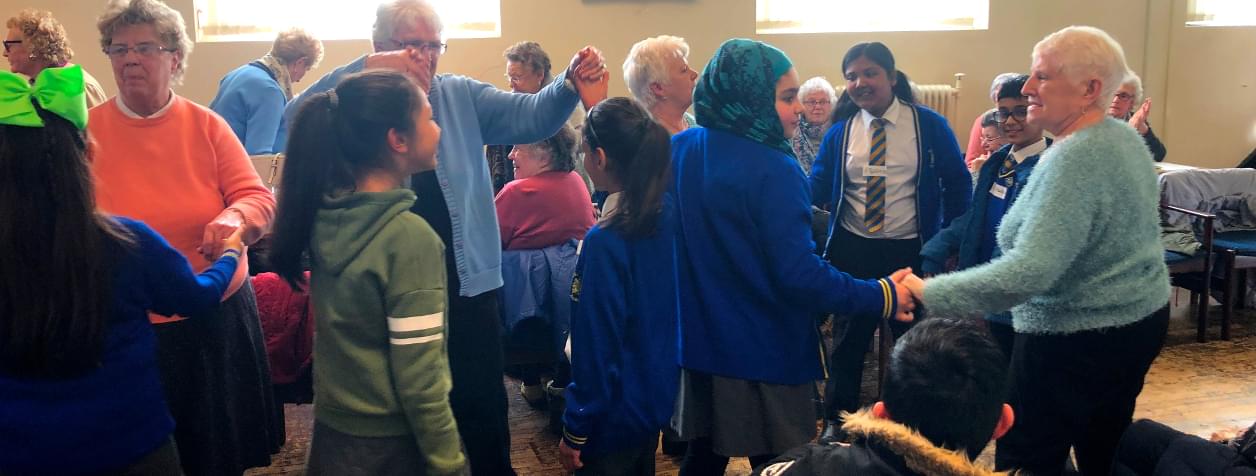By Hattie Ditton, Revive UK, Manchester
Revive supports refugees and people seeking asylum. As part of our welcome project, we have a successful resettlement process. We have recognised that, while our work reaches hundreds of people, there is a noticeably lower number of women who are accessing our services.
Realising this, we decided to create a space specifically for them. In 2016, Revive set up a Women’s Group, with the aim to empower female members of refugee communities in Greater Manchester. The group not only provides an important support network, but also gives women the opportunity to learn new practical skills.
Members of the group have opportunities to practise with different mediums such as spray paint, needlework and collage to make cards, jewellery and other crafts. They are then able to go on to sell their creations at local fairs and events. Unsolicited, some have donated proceeds back to Revive. In doing so, they have expressed that they are pleased to be able to offer something back to the organisation.
Sustainable products are becoming fashionable. ‘Artisan’ everything can be found in almost every shop window. It seems that people are becoming more and more interested in where items come from and the story behind them. The Women’s Group seized this new trend, responding to demand for ethical, handmade products. They made a beautiful collection of brooches from recycled metals. The women produce really intricate and unique pieces, each telling a different story.
Many women have reported that the resettlement period in the UK can be a lonely one; they value the Women’s Group for its inclusiveness. The group enables women from different cultures and backgrounds to unite, share and learn from each other.
Mabel, from Eritrea, attends every week. She arrived shy and quiet, who rarely voluntarily got involved with group conversations. In just a few months, her level of confidence has noticeably rocketed and she has benefited enormously from the support of the group.
“Since I started coming to the Women’s group, I have made new friends, I have learnt new skills and I have more confidence than before,” she told Revive.
Maureen, a Lay Spiritan from Manchester, has been volunteering and coordinating the group for ten years, with the help of other volunteers. She shares Revive’s vision of breaking down barriers, ending discrimination and promoting social justice.
She described to us the fulfilment she gets from the group: “It brings me such joy to watch the women’s journeys”.
Maureen is there every step of the way. She told Revive how much it means to her to be able to watch women like Mabel grow.
“Even when ladies begin work, or move on, they still come back to share their news when they get their status, or have babies”.
Her enthusiasm and energy is infectious, and helps to maintain a positive and welcoming atmosphere in a group that is based on mutual respect.
Another member, Mahtab, explained, ”If I didn’t used to be able to do something I would be shy to speak out but Maureen has taught me that you can learn new skills, no matter what your age”.
We have a big focus on giving women a voice and enabling them to develop their own skills. It’s about taking back control for the women, and being able to reclaim ownership of their future.
Finally, Mabel said: “This group has helped me so much. I have always been creative and now I can put this creativity to use, making things like cards and needle-work, which I can sell to make money and earn a living”.
Through Revive’s Women’s Group, ladies like Mabel can get back some self-belief, which ultimately is the most precious thing to drive forward their future in the UK.
The asylum-seeking process can be especially challenging for women, many of whom have experienced gender-specific forms of persecution in their home countries or during their journey here, which can have a lasting impact on somebody’s mental health. This can leave women frightened, misunderstood and alone. The Women’s Group is a space where trust can be rebuilt and struggles and insecurities can be forgotten.
“Some days, all the women want to do is laugh”, explained Maureen.
Such a simple thing, like having somewhere to be listened too, is invaluable.
“Monday is the best day of the week for me”, said Agnes, who has been coming to the group for the past year.
At Revive we have no doubt that each one of these ladies will go on to do amazing things.
Make an effort to get to know the women in your community. It could mean a lot to them and, you never know, you could end up making a friend for life.
This article first appeared in the CSAN ‘Caritas in Action’ column in the Catholic Times on 28.04.17

